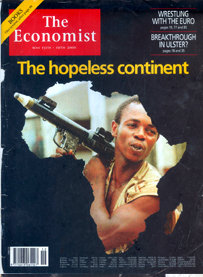This is the last of my posts drafted on holiday last week, and is particularly timely despite being retrospective because my review of Jane Gleeson-White’s [amazon_link id=”0393246671″ target=”_blank” ]Six Capitals, or Can Accountants Save the Planet[/amazon_link] is published in the new issue of Foreign Affairs today.
I *loved* Jacob Soll’s [amazon_link id=”0718193628″ target=”_blank” ]The Reckoning: Financial Accountability and the Making and Breaking of Nations[/amazon_link]. It gives a long historical perspective on accountancy – no, wait – and particularly its importance in literally holding leaders and politicians to account. It is also extremely well written and lively. I got much joy from learning of the 1604 book Accounting for Princes, and that there was a real Musketeer called Captain D’Artagnan, he isn’t just a [amazon_link id=”1853260401″ target=”_blank” ]creature of fiction[/amazon_link]. That Jacques Necker’s [amazon_link id=”1246639963″ target=”_blank” ]Compte Rendu[/amazon_link] sold more than 100,000 copies in one year, 1781, alone. And this description of Josiah Wedgwood’s legacy: “Sound industrial management and tableware for the middling sort.”
[amazon_image id=”0718193628″ link=”true” target=”_blank” size=”medium” ]The Reckoning: Financial Accountability and the Making and Breaking of Nations[/amazon_image]
The book’s message is that there is a constant tension between the increasing sophistication of methods of accounting to hold to account, literally, kings or powerful companies or political leaders and the scope that sophistication creates for new ways of defrauding the people or the shareholders. So the methods of accountancy need to be embedded in a culture of honest dealing. Soll concludes that we lack that now: “Accountants have become separated from everyday culture. … All countries, rich and poor, hide the true costs of their pension benefits and health care as well as of infrastructure, off their balance sheets.” But there is no public outcry about bad public accounting, while deceitful bankers and financiers have not been held to account for the crisis. (One of my arguments in [amazon_link id=”B004NNUWY4″ target=”_blank” ]The Economics of Enough[/amazon_link] was that this situation is seriously unsustainable.)
Soll cites the proposal by Timothy Irwin of the IMF that governments should publish 50 year ahead balance sheets, but queries whether it is possible. “By separating finance into its own sphere, we have lowered our financial and political aspirations.” The numbers should be an integral part of society but are not: “If there is any historical lesson to be learned here, it is that those societies that managed to harness accounting as part of their general cultures flourished.” These have been rare – Renaissance Italian city states, the early American republic, Britain of the Glorious Revolution or for a time in the Industrial Revolution. They have been brief: Charles Davenant, one of the earliest national income accountants, tried to calculate the public finances after 1689 but by the time his Discourses on the Publick Revenues was published complained that information was being withheld.
My sole regret (as the author of [amazon_link id=”0691156794″ target=”_blank” ]GDP[/amazon_link]) about Soll’s book is that he does not cover economic statistics more generally, but rather public finances. They too matter for political accountability and are no longer doing that job (as I argue in my recent working paper). Still, it’s good to want more of a book rather than less. I highly commend [amazon_link id=”B00JK2H1ME” target=”_blank” ]The Reckoning[/amazon_link].
Final couple of days of holiday now. I have Sarah Bakewell’s [amazon_link id=”B00SLSG08O” target=”_blank” ]How To Live: A Life of Montaigne in one question and twenty attempts at an answer[/amazon_link]; and [amazon_link id=”077103850X” target=”_blank” ]Sapiens: A brief history of humankind[/amazon_link] left to read.


